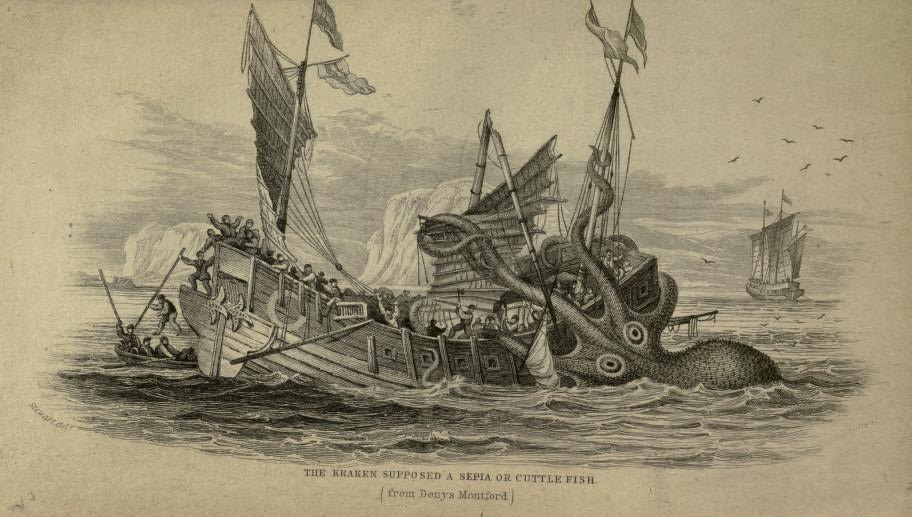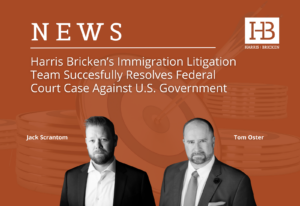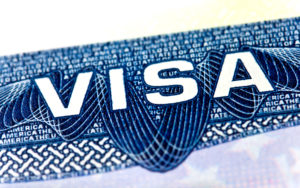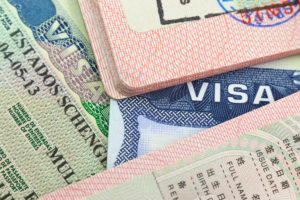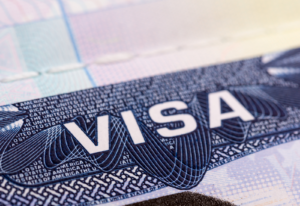Immigration Troubles For the NHL’s Seattle Kraken
Seattle Kraken right wing Daniel Sprong had to miss the Kraken’s National Hockey League season opener last week against the Anaheim Ducks due to immigration troubles. The Kraken went on to lose against the Ducks in overtime after dropping a two-goal lead. Sprong also ended up missing the Kraken’s second and third games against the LA Kings and the Las Vegas Golden Knights, respectively, but he was on the ice against the Carolina Hurricanes on Monday.
P-1A Athlete Visa
Sprong, a citizen of the Netherlands, can play hockey professionally in the U.S. on a temporary basis through what’s called a P-1A visa. Most non-U.S. citizen professional athletes take advantage of this visa category. To be eligible for a P-1 visa, the individual must be entering the U.S. solely for purposes of performing at a specific athletic competition and meet one of the following four criteria:
- An individual athlete at an internationally recognized level of performance;
- Part of a group or team at an internationally recognized level of performance;
- A professional athlete; or
- An athlete or coach, as part of a team or franchise that is located in the U.S. and a member of a foreign league or association.
P-1A visas are granted to both athletes and essential support personnel. Athletes playing on a U.S. sports team can be granted a stay of up to one year, which may be extended in increments of up to one year.
Procedural Issues
The issue that reportedly prevented the Kraken’s new right wing from playing in Wednesday’s game, however, was not his substantive qualifications for the visa, but rather procedural issues. Substantively, Sprong has been meeting the P-1A criteria every year since 2015, having played previously for the Pittsburgh Penguins, the Anaheim Ducks, and the Washington Capitals. The obstacles in Sprong’s ability to suit up for the Kraken, however, are procedural technicalities.
As the Seattle Times reported on October 12, Sprong’s P-1A visa simply expired at the end of September. One might naturally ask, how could this happen? The answer probably lies with the vicissitudes of professional hockey, which has feeder teams, two-way contracts, and players who often move back and forth between rosters. Sprong was acquired last year by the Kraken in a trade with the Washington Capitals and he has since then been with the team on only a professional tryout basis.
This preseason, the Kraken had been in Canada for a training camp. Sprong was part of that camp because he did not need a U.S. visa to train with the team in Canada. The Kraken needed to evaluate Sprong’s performance before offering him a professional contract. However, until the team and Sprong agreed on the new contract, the Kraken could not file Sprong’s P-1 visa renewal.
Once the Kraken decided to offer Sprong a contract — only days before the season opener — its front office had to rush to file an expedited P-1A renewal petition for Sprong with the U.S. Citizenship and Immigration Services (USCIS). The Kraken were able to secure the P-1 visa renewal for Sprong within 15 days of filing. This story should have ended nicely there, but another important technicality prevented Sprong from being able to enter the U.S. immediately upon receipt of the P-1A approval from the USCIS.
Consular Hurdles
Sprong, a citizen of Netherlands by birth, moved to Canada when he was eight. He is a Canadian permanent resident but has not yet obtained Canadian citizenship. Unlike Canadian citizens – who can simply travel to the U.S. with the USCIS’s approval of the P-1A petition – citizens of all other countries, including even those who are permanent residents of Canada, must apply for a visa at a U.S. consular post abroad before they can enter the U.S. in P-1A status. Sprong had to comply with this additional procedural step before he could join with the Kraken in Seattle.
U.S. work visa petitions are paper filings, requiring the petitioner (the Kraken, in this case), to file hundreds of pages of evidence to accompany the forms and government filing fees. The original petitions must also be duplicated and sent to the USCIS so that they can be shared with the Department of State and its consular posts worldwide. The Petition Information Management System (“PIMS”) serves as a repository of petitions that a consular officer anywhere in the world can access when adjudicating visa applications.
When Sprong went to the U.S. consulate in Calgary, he brought with him the original approval notice issued by the USCIS. The consular officer would then have had to review the detailed evidence by accessing PIMS. Perhaps due to an oversight or because not enough time had passed for the petition to be scanned into PIMS, there was no record of the Kraken’s P-1A petition on behalf of Sprong in PIMS. The U.S. consulate in Calgary demanded to see the petition evidence in PIMS – requiring a staff member to scan the petition – before granting Sprong the visa foil necessary for him to enter the United States.
Sprong Was Luckier Than Most
Our immigration lawyers strive to ensure that all petitions we file with the USCIS on behalf of our clients are complete, backed by evidence, and sent in duplicate for entry into PIMS. Even then, clients need our help to overcome systemic obstacles and governmental oversight at consular posts around the world.
The ugly truth about consular visa processing is that but for Sprong being a professional athlete and having the weight of a professional sports team behind him to ensure a speedy resolution of the problem, the processing of his visa could have been delayed weeks or even months. Ordinary people that have to deal with problems at the consulate (including problems for which they bear no responsibility) often have their petitions sent into a convoluted, bureaucratic black hole. Making matters worse, consular officers are in large part immune from having their decisions challenged because of a doctrine called consular non-reviewability. This means that most people are at the mercy of consular officers and have no recourse if their case is refused, denied, or sent back to USCIS for further processing.
If the consulates treated everyone like a P-1A visa holder, we would have a more streamlined and trustworthy system. Nonetheless, as we are part of the Seattle branch of the firm we are happy to hear that Sprong’s visa issues appear to have been sorted out and we hope he goes on to have a great season with our new NHL team.










